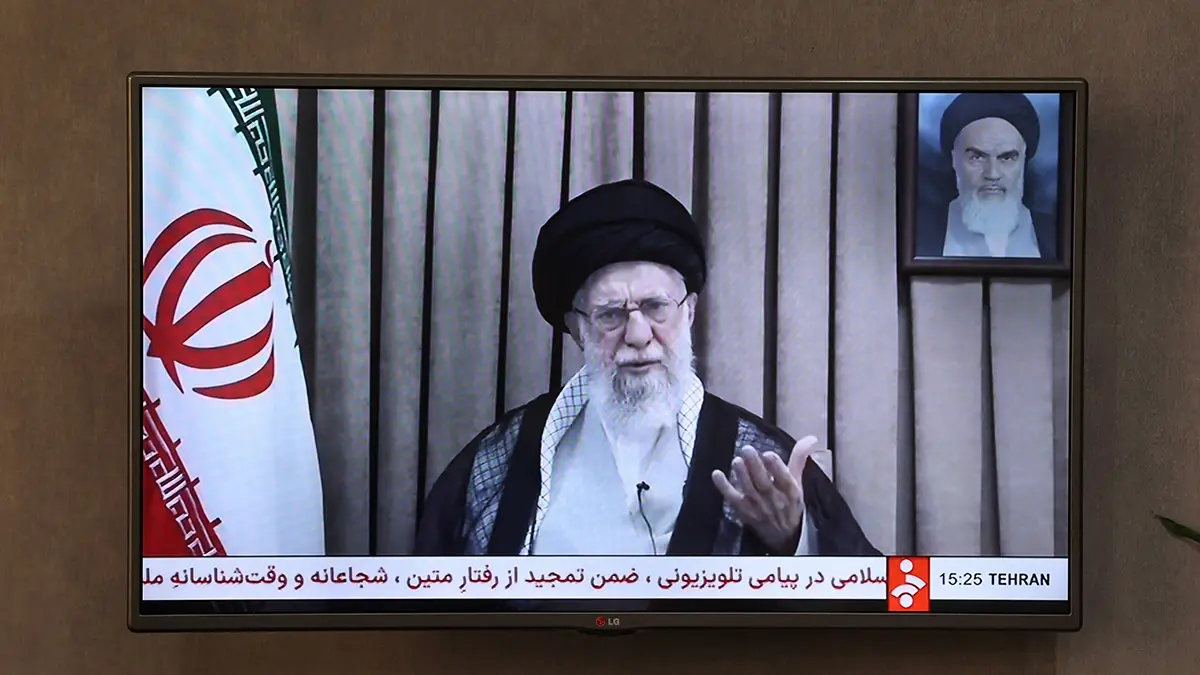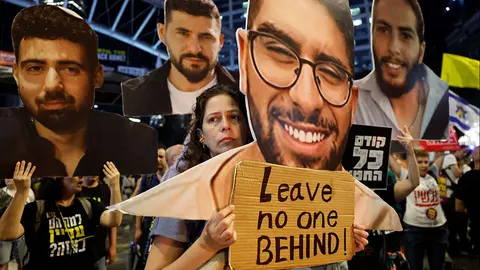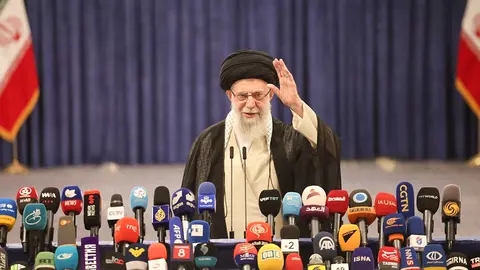The twelve days that strengthened Iran

We have witnessed a historic turning point: Netanyahu and Trump have crossed the red line, with consequences that are already proving counterproductive.
Israel, true to its policy of war based on attacking, invading and occupying neighbouring territories, has finally opted for military aggression against Iran, while continuing its genocide in Gaza and its invasion of Lebanon and Syria.
The intervention of Trump, who came to power as a peacemaker, has added a new dimension to the conflict. Those who hoped he would fulfil his promise to end the war in Ukraine have been disappointed by this new front against Iran, which leaves no room for diplomacy.
This time, acting as commander-in-chief, Trump agreed, at Israel's behest, to focus attention on the Iranian nuclear dossier that he himself dismantled during his first term (2018), to the astonishment of his European partners.
Iran has repeatedly denied that it is developing nuclear weapons, making its nuclear facilities available to the International Atomic Energy Agency (IAEA) for verification and monitoring. In fact, there is no report to the contrary.
This reminds us of the invasion of Iraq, based on the big lie about ‘weapons of mass destruction’ in the possession of Saddam Hussein, which were never found, but which provoked a wave of violence and the proliferation of anti-Western terrorist groups that sowed terror throughout the planet.
Trump and Netanyahu have crossed a historic line by abandoning diplomacy and ignoring the UN, the IAEA and a European Union that continues to play the role of a silent spectator.
But Iran, far from backing down, has responded with unprecedented force. The wave of missiles launched against Israel — which has left dozens dead, hundreds wounded and caused considerable damage in cities such as Tel Aviv and Haifa — suggests that Israel is no longer safe.
Tehran has demonstrated that its capacity to react exceeds the conflicts waged in the past by Arab coalitions against Israel; moreover, military experts point out that Iran could be reserving missiles with greater precision and destructive power for future phases of the conflict.
The image of Iran as a victim of foreign aggression and a symbol of resistance to Zionism has mobilised its population, reinforcing national unity and patriotic sentiment.
Outside its borders, solidarity with Iran has spread among Arab and Muslim citizens. The media impact of the attacks and the statements by Supreme Leader Khamenei have fuelled a wave of sympathy and expressions of support on social media and in the streets of many Arab countries, in revenge for the televised genocide in Gaza and for the starving Gazan population that continues to face death amid a trap of aid.
Despite their differences with the Tehran regime, the Arab League Council and the Organisation of Islamic Cooperation (OIC), which recently met in Turkey, have condemned the Israeli attack and view the Iranian offensive as legitimate. The unconditional support of strategic allies such as Pakistan, China and Russia, as well as the condemnation of countries such as Saudi Arabia, Turkey and Egypt, have reinforced the perception that Iran has an increasingly broad international support network.
Trump and Netanyahu have taken a huge risk by betting on war, a strategy that could temporarily strengthen the leadership of both leaders. However, there is also the possibility that it could hasten their downfall by dragging the region into an even deeper crisis.
Beyond national security, Netanyahu's war policy has allowed him, for the time being, to divert attention from his legal problems and from taking responsibility for the prevention of the attacks of 7 October 2023, but it also exposed him to unprecedented wear and tear if the escalation had continued.
The situation is also unfavourable for Trump, who claims credit for himself, and not for the Pentagon, for the success of the attacks on the nuclear facilities in Natanz, Fordow and Isfahan, while presenting himself as a peacemaker for the proposed and accepted ceasefire. A truce, which is not peace, but which allows them to reduce international pressure, halt the exodus of the Israeli civilian population, and stop the unprecedented destruction of their critical infrastructure.
It is important to note that Iran, far from being isolated, has strengthened its geopolitical position and its internal and international legitimacy. The global condemnation of the bombings, the media mobilisation and Tehran's firm diplomatic response have amplified its popular support, consolidating its image as a key player in the region.
After twelve days of conflict, Iran is in an advantageous position that allows it to consider withdrawing from the Nuclear Non-Proliferation Treaty, a treaty to which the State of Israel does not belong and which is widely believed to possess nuclear weapons.
Military aggression, outside the mandate of the UN and contrary to international law, far from guaranteeing security, encourages rearmament, the search for weapons of mass destruction and nuclear proliferation as a form of protection.
The joint attack by the United States and Israel has not weakened the Tehran regime, but rather strengthened it; the truce is perceived as a victory for Tehran and a defeat for Netanyahu, as the war has not succeeded in altering the strategic balance, but rather is taking place in a scenario of deterrent equilibrium.
Experts doubt that the alleged Iranian nuclear threat has been eliminated; indeed, Tehran's ballistic capability remains intact. Nor has regime change or surrender been achieved.
Thus, with the containment that the United States and Israel had maintained for years against Iran broken, the truce that has been announced is nothing more than a pause, and in the meantime, Netanyahu continues to prey on the Gazans. But when will there be true peace?



